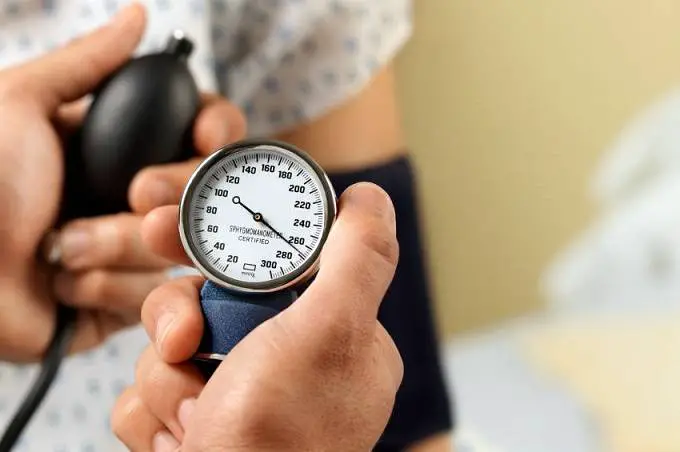While high blood pressure increase certain risks, lower blood pressure does not lower them, a recent study indicates.
Blood pressure is the pressure which is applied on blood vessel’s walls by blood.
In other words – when your heart pumps the blood in and out your blood vessels they will shrink and expand as a consequence to pressure.
But my doctor said lower blood pressure is better!
And he or she is mostly right. Experts believe that the lower the blood pressure the better. It is true – lower blood pressure will put less strain on your blood vessel’s walls, which is a good thing. Vessels have limited flexibility.

Image source:http://www.saltinstitute.org
Until recently, a value of 130/85 mm Hg or less was considered optimal. After additional research was done, 120/80 mm Hg value was considered optimal and desirable.
So what is normal blood pressure then?
The latest news is that a value of anything less than 120/80 mm Hg (for example 115/75 mm Hg) is considered normal – of course within limits. A blood pressure of 80/60 mm Hg is not good at all, although it poses no direct threat to your health.
You will probably just feel tired and without energy. In such case you need to work on elevating your blood pressure – for example introducing salt to your diet which is a proven way to elevate BP.
On average, ideal blood pressure in considered anything between 95/65 to 119/79 mm Hg. Some people might have lower / higher blood pressure and feel perfectly OK. Keep in mind that blood pressure also changes as a person ages.
120 represents the so called systolic blood pressure. It occurs when heart pushes the blood into blood stream.
80 represents the so called diastolic blood pressure. It occurs when heart drains the blood back.
Read more about diastolic and systolic blood pressure here.
A study suggests that having a lower blood pressure does not lower any risks
Several studies indicate that your cardiovascular risk starts increasing at 115/75 mm Hg and not at 140/90 mm Hg as it was believed years ago.
For every 20 mm Hg above 115 mm Hg of systolic blood pressure and every 10 mm Hg over your diastolic blood pressure your risk doubles!
So at 135 / 85 mm Hg you are at double risk of developing cardiovascular disease / stroke / heart failure.
It is unknown though whether systolic blood pressure lower than 120 mm Hg among adults with hypertension (HTN) lowers the chance of heart failure, stroke, and myocardial infarction risk.
Study findings
A study published online in JAMA Internal Medicine, involved some 4,480 people and lasted for more than 20 years. 22 to be exact. In those 22 years there were 1,622 recorded heart attacks and other serious cardiac problems.
Stroke and other cardiac events were much more frequent in people who had elevated blood pressure levels (systolic blood pressure of above than 140 mm Hg, diastolic blood pressure of above 95 mm Hg), which confirms that elevated blood pressure poses an increased threat.
On the other hand, and not quite as expected, persons with lower blood pressure and those with normal (optimal) blood pressure experienced the same rate of heart failure, stroke and other cardiac events.
Differentiation factors such as smoking, use of drugs to lower blood pressure, and other variables were considered when drawing conclusions.
See blood pressure chart if you are more of a visual type.
The lead author of a study, Dr. Carlos J. Rodriguez, says that people should still keep an eye for their blood pressure levels and aim for readings lower than 120 / 80 mm Hg — especially those patients that already suffer from diabetes or heart disease.
He also stressed out that lower blood pressure is not necessarily better – consult your personal doctor for final answer.
http://www.health.harvard.edu/fhg/updates/update0803a.shtml
http://archinte.jamanetwork.com/article.aspx?articleid=1881014
Revision 5.10.2018 – dead link removed










































[…] such problems are not handled with care, they can lead to long-term health complications including high blood pressure, erectile dysfunction and other diseases. You should take preventive measures to enhance your […]
120/80 is not optimal anymore? What’s next, heart rate 60 is not optimal anymore?
My average blood pressure is somewhere around 125/85 is this too high for a 35 year old male?